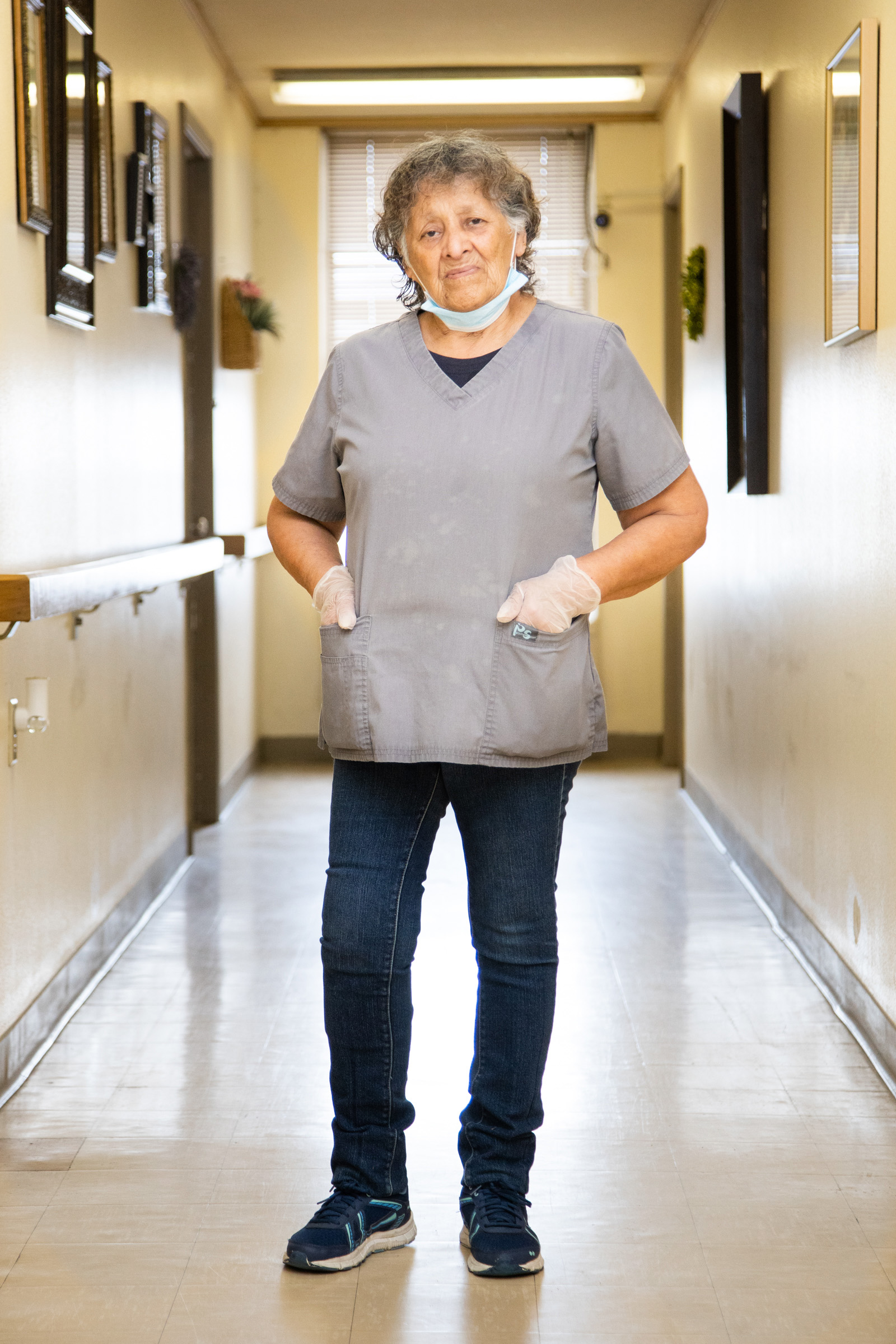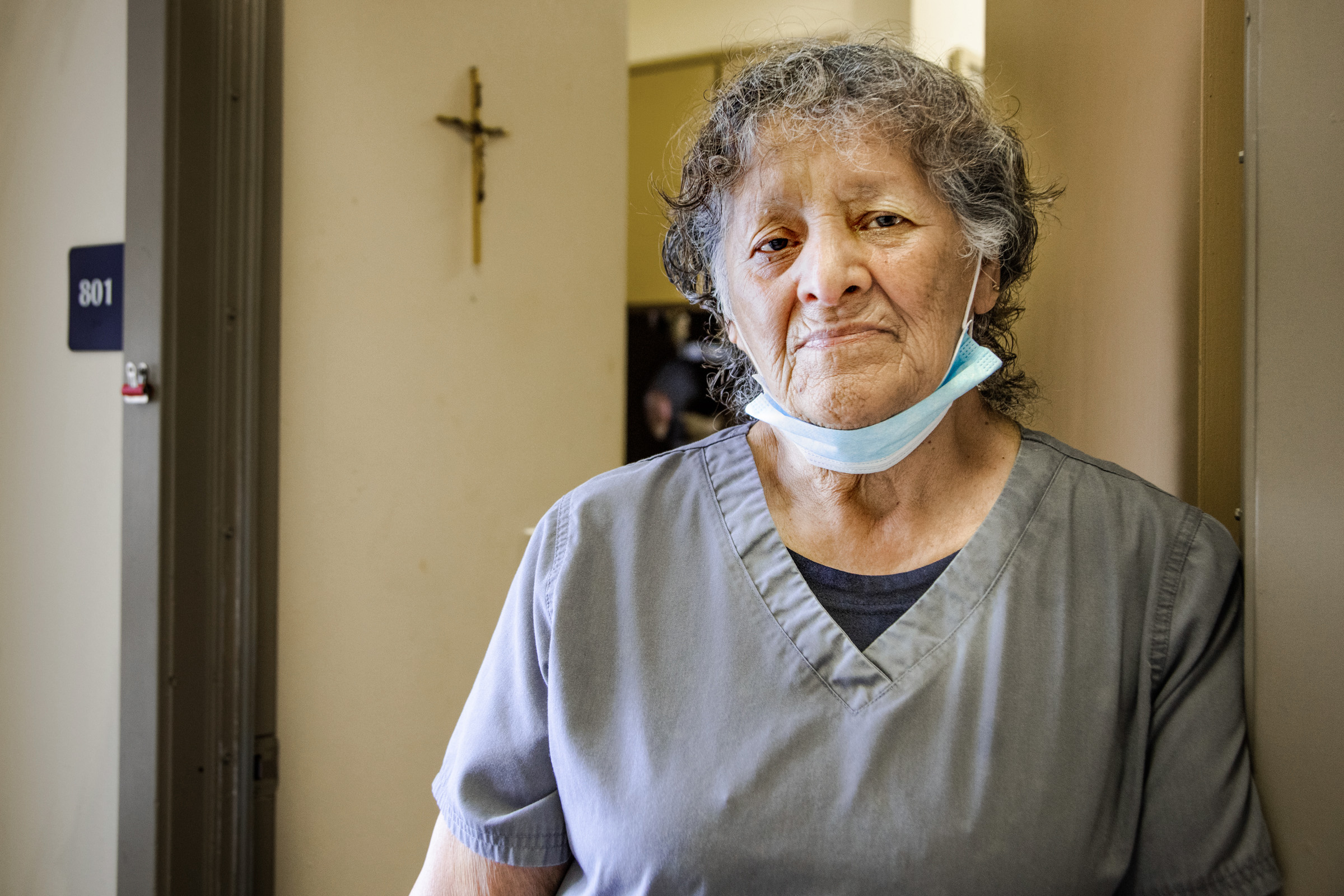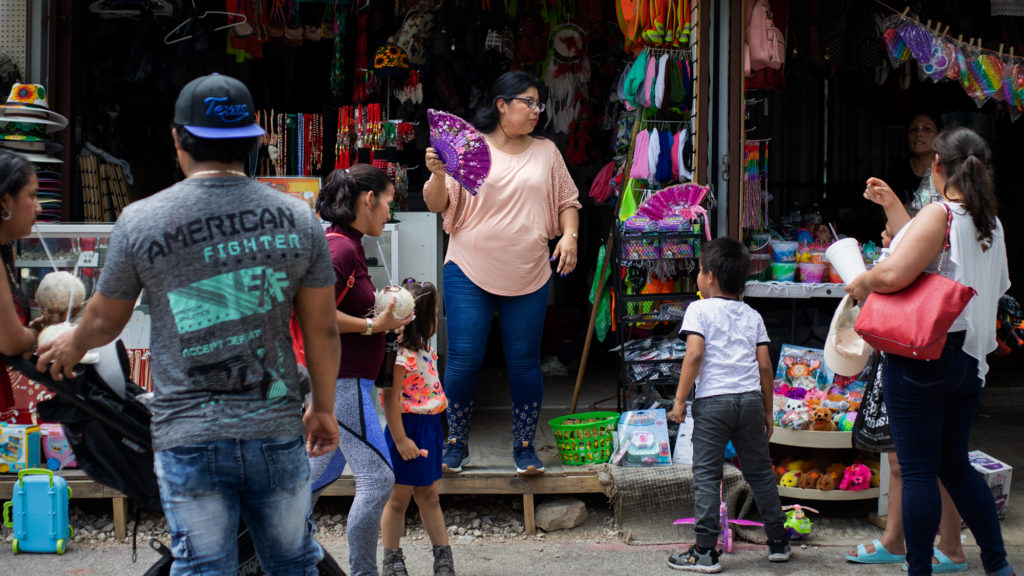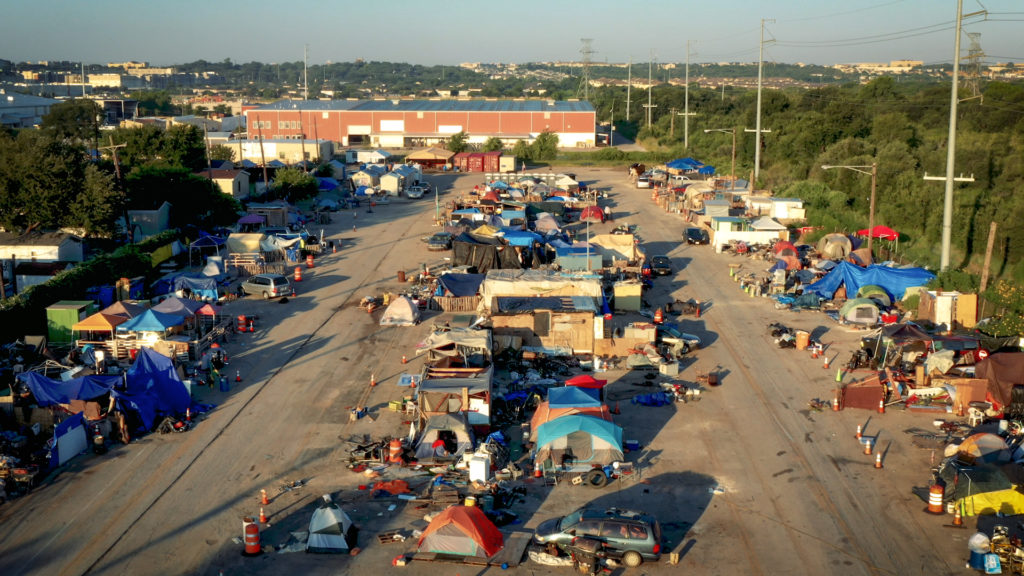For Nelly Hernandez, working from home during the COVID-19 crisis is not an option. As an in-home care aid, her clients depend on her for assistance with shopping, meal preparation, cleaning, and small household chores.
At 78 years old, Hernandez and her clients, who are also in their seventies and eighties, are considered among the most vulnerable to the COVID-19 virus. Yet Hernandez continues to visit her two clients three days a week, for now, and as long as she can.
“They need you so much, and you learn from them,” Hernandez says. “I’ve learned that it’s hard for them to be alone, so I’ve learned to love them, just like my own family. I see their loneliness. They’re left there and no one comes to see them.”
Hernandez has been working for the in-home care branch of Meals on Wheels Central Texas for the past 17 years. She previously worked in hotels, but after her son died of leukemia in his early twenties, she just couldn’t do it anymore.
“Before he died, he told me, ‘Mom, keep on going. You took care of me. You can take care of other people,’” Hernandez says. “So when he died, I started doing this work. It’s been a beautiful experience.”

Hernandez says her job feels the same now as it did before, but also different. She’s always worn latex gloves during visits with her clients, but she wears a mask more often now. There’s also the new sense of worry that’s taken root — for her clients and herself.
She relies on income from this job to cover bills and care for three great-grandchildren she’s raising, all of them teenagers. While social security payments and food stamps help support the family, the loss of this job would put them all in a difficult position.
Still, every worry Hernandez harbors over her paycheck soon brings her back to thoughts of her clients. She wonders what may happen if quarantines become tighter or one of her clients becomes ill and she can’t visit.
“What if she gets up and she falls down?” Hernandez asks. “Who will be there to pick her up? I pray every night that we will be there for our clients. They need us and we need them too.”



